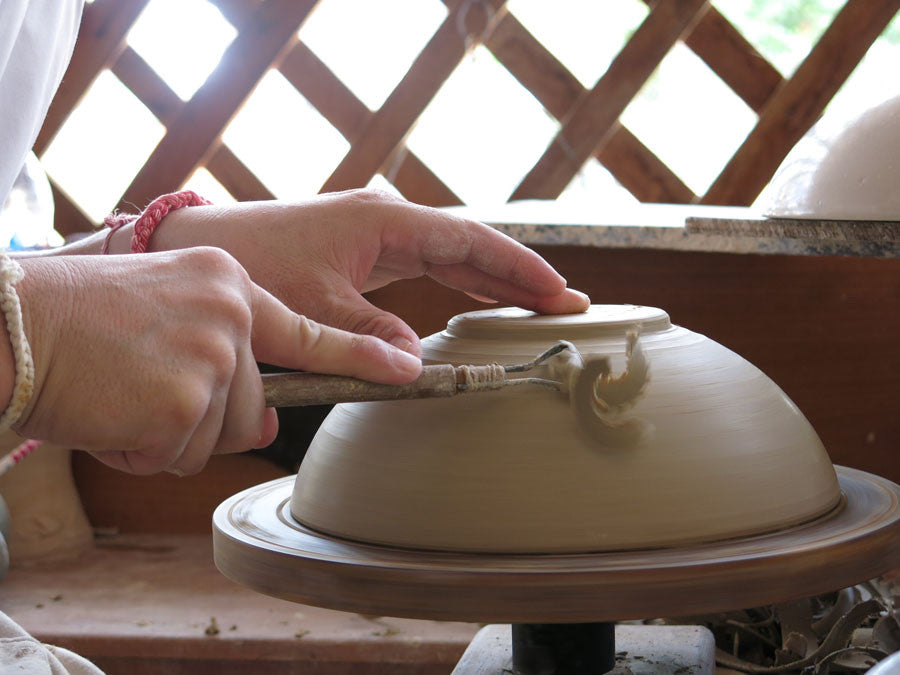
We often get asked what the difference is between earthenware, stoneware & porcelain, or ceramic & pottery.
This blog post is our introduction and basic explanation of these commonly used terms.
Pottery and ceramics are one and the same.
The word ceramic derives from Greek which translates as "of pottery" or "for pottery".
Both pottery and ceramic are general terms that describe objects which have been formed with clay, hardened by firing and decorated or glazed.
Clay is a natural material created by weathered rock. It is soft, malleable and will permanently harden if baked at high temperatures, making it a practical material for making tableware.

There are three main types of pottery/ceramic. These are earthenware, stoneware and porcelain.
Earthenware
Earthenware is clay fired at relatively low temperatures of between 1,000 to 1,150 degrees. This results in a hardened but brittle material which is slightly porous (small holes through which liquid or air can go through), therefore can not be used to contain water.
To remedy this, a glaze is used to cover the object before it is fired in the kiln for a second time and rendered waterproof.
Stoneware
Stoneware is made from a particular clay which is fired at a higher temperature of 1,200°C. This results in a more durable material, with a denser, stone-like quality. The finished product will be waterproof and unlike earthenware, does not need to be glazed.
Above: Examples of our stoneware
Porcelain
Porcelain comes from a refined clay which is fired at very high temperatures of approximately 1,200–1,450°C. The result is an extremely hard, shiny material often white and translucent in appearance.
The earliest forms of porcelain originated in China around 1600BC and this association popularised the term 'fine china’, or bone china when the porcelain has had ground animal bone added to the clay, in order to create an even more durable material.
Summary
The main points of comparison between Earthenware, Stoneware and Porcelain, will be the temperature at which the clay is fired and the resulting strength, water resistance and durability of the finished products.
The quality of the products will be dependant of the quality and purity of the clay that is used to create them, but as a general rule, Stoneware and Porcelain will be the two more durable forms of ceramic, which are commonly used as tableware at home.




2 comments
Write a commentNorman Chiwakata
Good morning,i would like to ask if ballclay is an earthware or a stoneware?
Amy Anderson
All the three types explained in very easy and simple way each type has its own qualities which were not mentioned in other type and the manufactured way is also different from each other